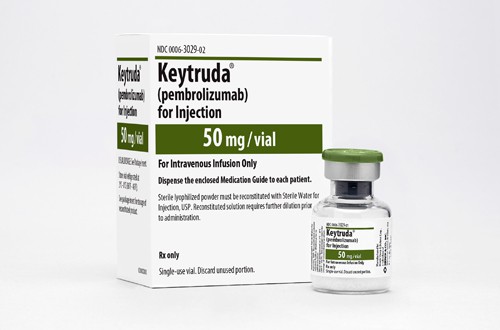
Merck & Co has added yet another new indication to the tally for its PD-1 checkpoint inhibitor Keytruda, picking up an FDA green light for use of the drug in stomach cancer.
The US regulator has cleared the drug as a third-line option after chemotherapy for patients with recurrent locally-advanced or metastatic gastric or gastroesophageal junction cancer, whose tumours express the biomarker PD-L1.
The verdict adds to a bumper crop of new approvals for Keytruda (pembrolizumab) in the last few months, during which it’s won okays for first-line non-small cell lung cancer (NSCLC) in combination with chemo, second-line bladder cancer and microsatellite instability-high (MSI-H) cancer, the first time that a drug has been approved to treat all cancers with a specific tumour biomarker.
The company notes that Keytruda is the first PD-1 inhibitor to be approved for stomach cancer in the US and will be used for patients who have disease progression despite two or more prior lines of chemo or – in some cases – HER2-targeted therapy.
It’s now picked up 10 indications in its first three years on the market, and the new use in gastric cancer will add to its breakneck sales momentum, with revenues from the drug rising to almost $1.5bn in the first six months of the year.
Keytruda has been approved based on the results of the KEYNOTE-059 study in 259 patients, 143 of whom were PD-L1 expressers above the threshold for entry into the trial. Among these, Keytruda achieved an overall response rate of just over 13% (19 patients), with a complete response rate of 1.4%. Around half the responders lived for six months and longer, with a quarter surviving beyond 12 months.
The expected survival of patients with metastatic gastric cancer is less than one year with very few new drugs approved for this disease in the past decade, and there is currently no standard of care for treatment third-line and beyond.
Bristol-Myers Squibb’s rival PD-1 inhibitor Opdivo (nivolumab) has also shown activity in this setting in an Asian study and was approved in Japan for this indication last week. Opdivo has also just picked up a US approval as a second-line treatment for hepatocellular carcinoma – a common form of liver cancer – in patients previously treated with Bayer’s Nexavar (sorafenib).




